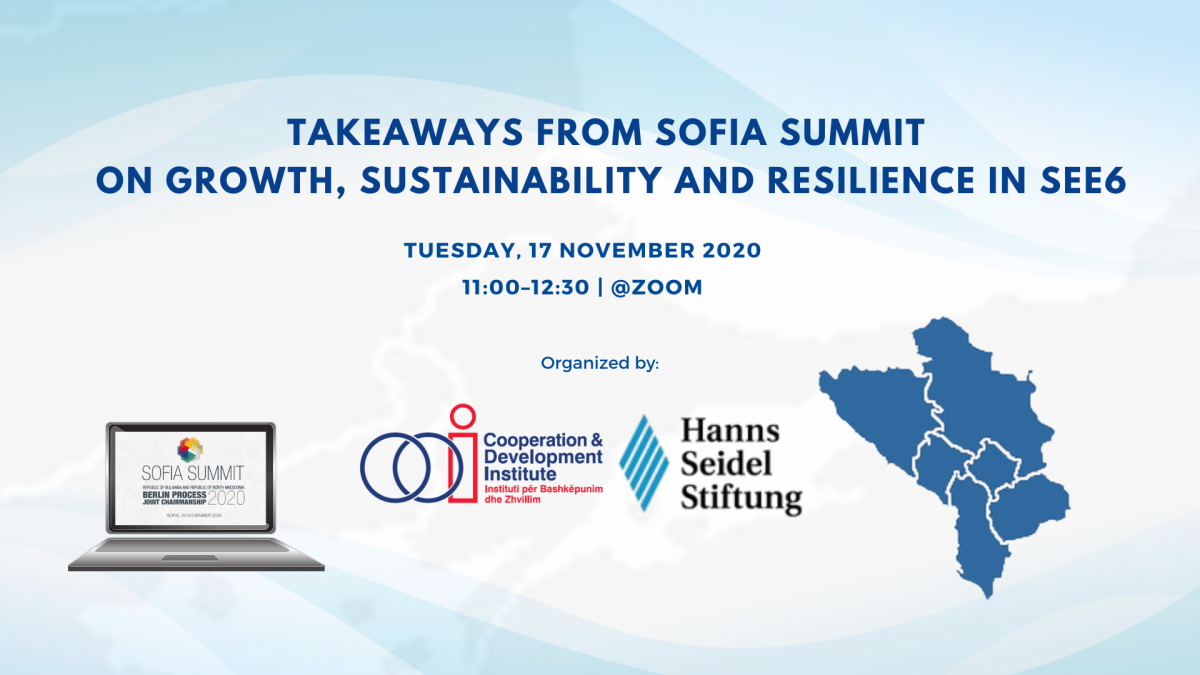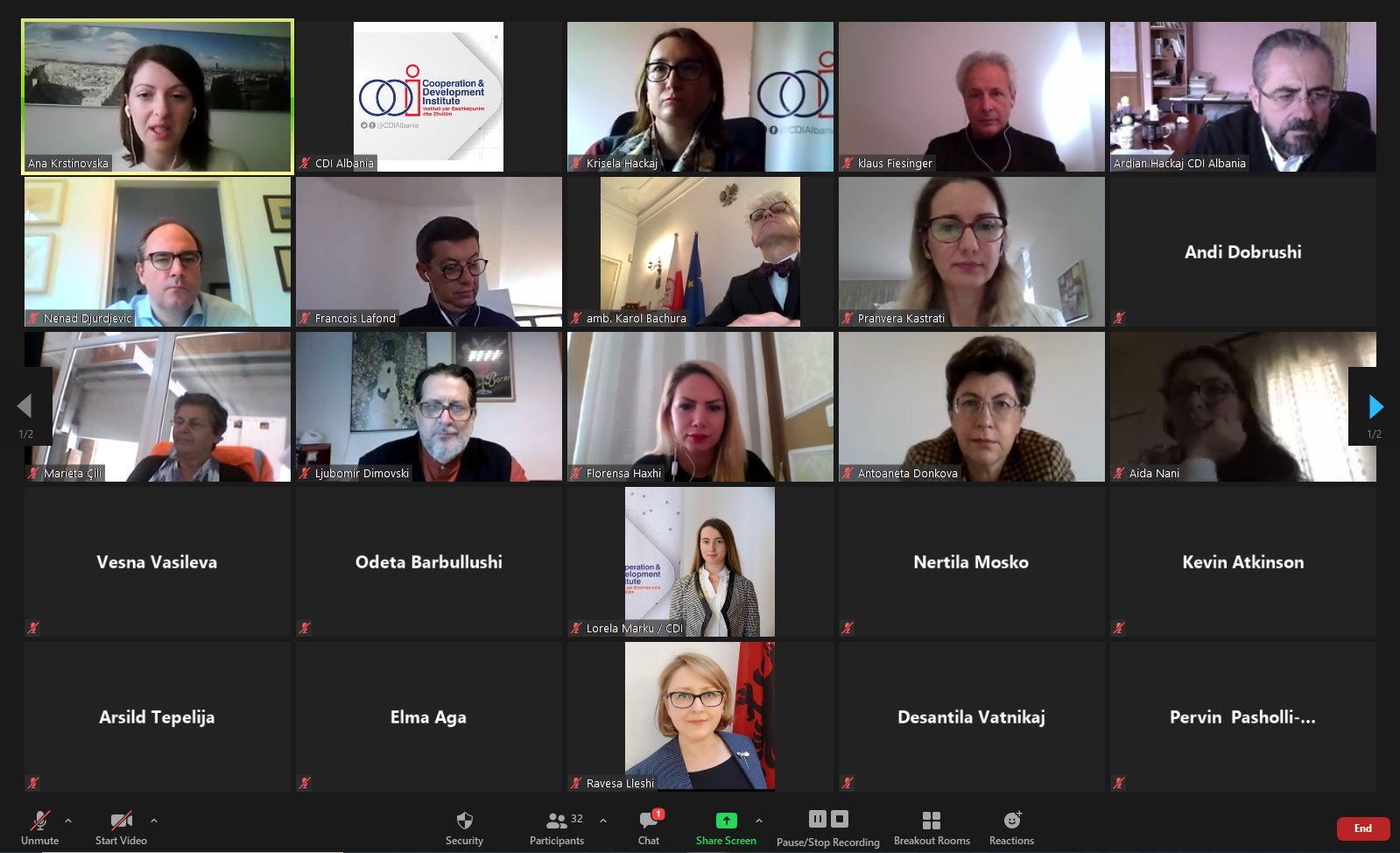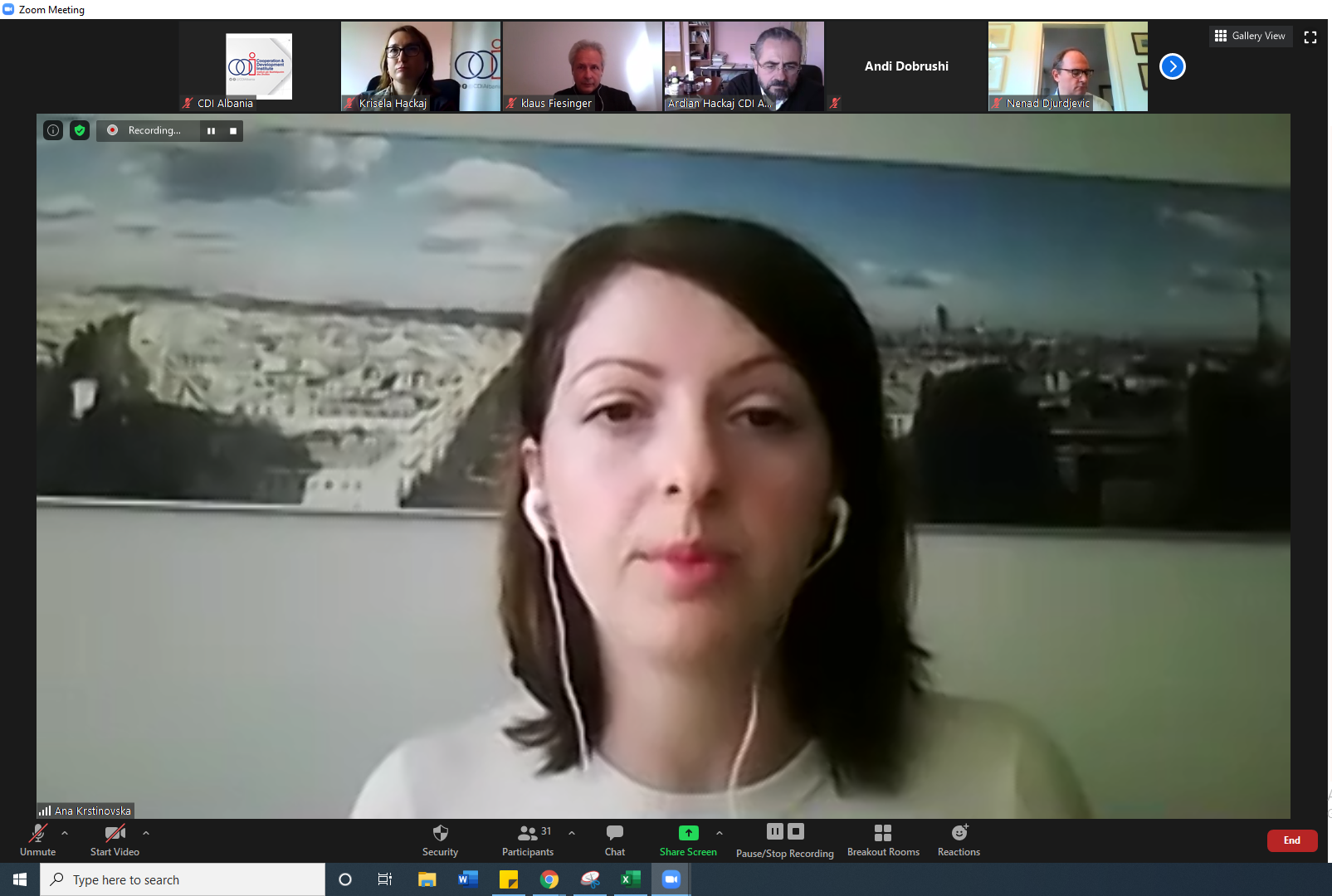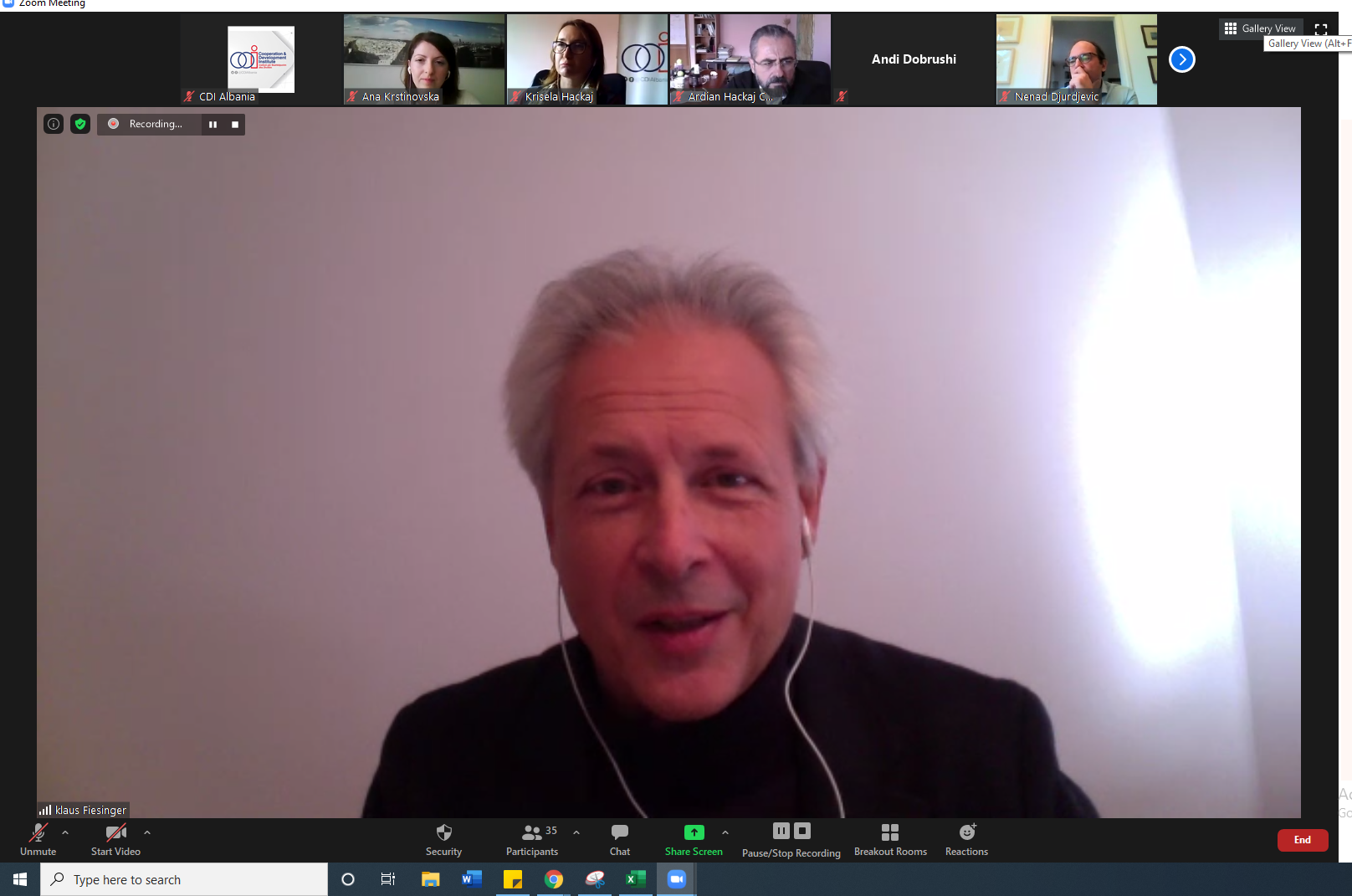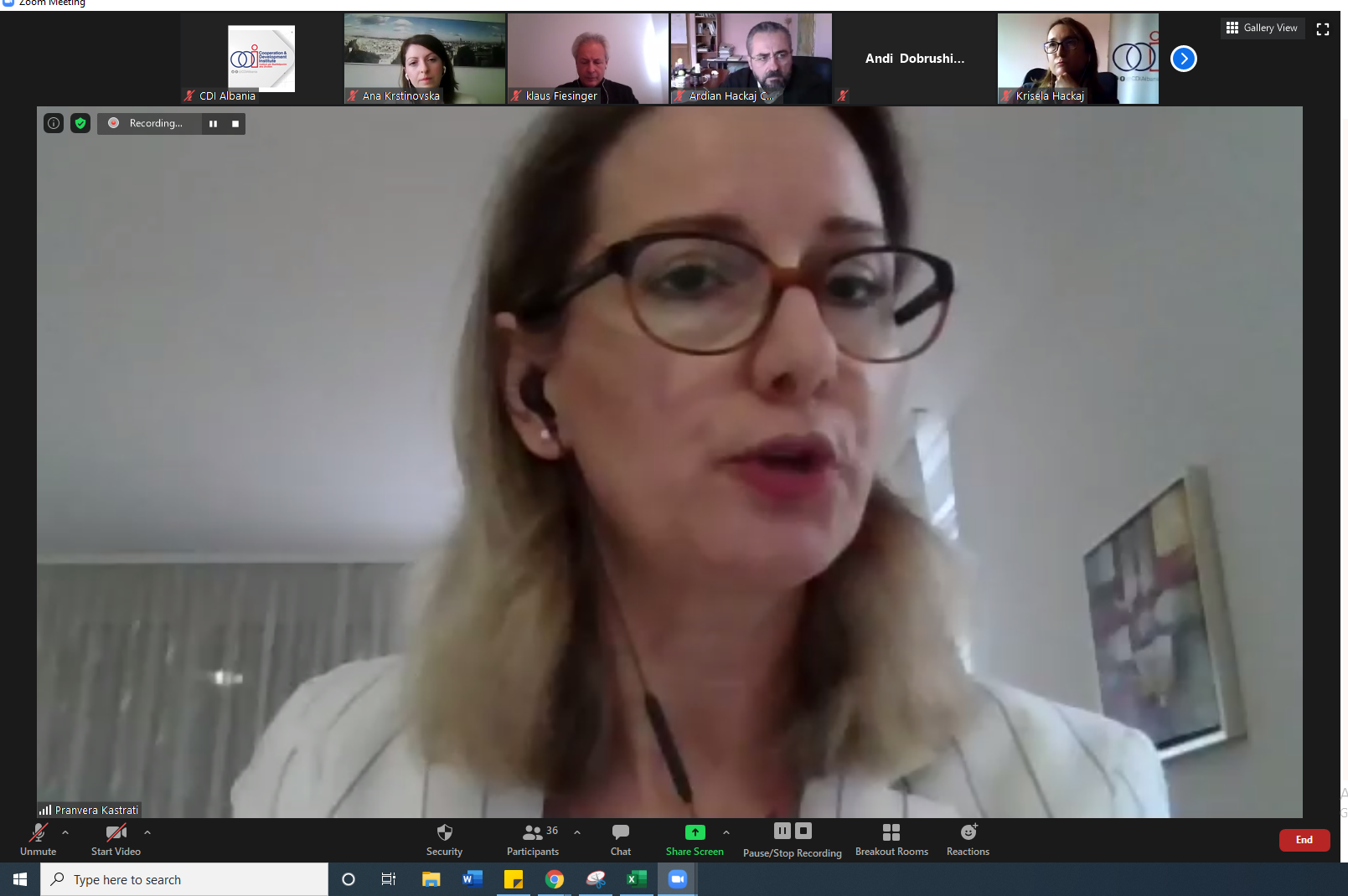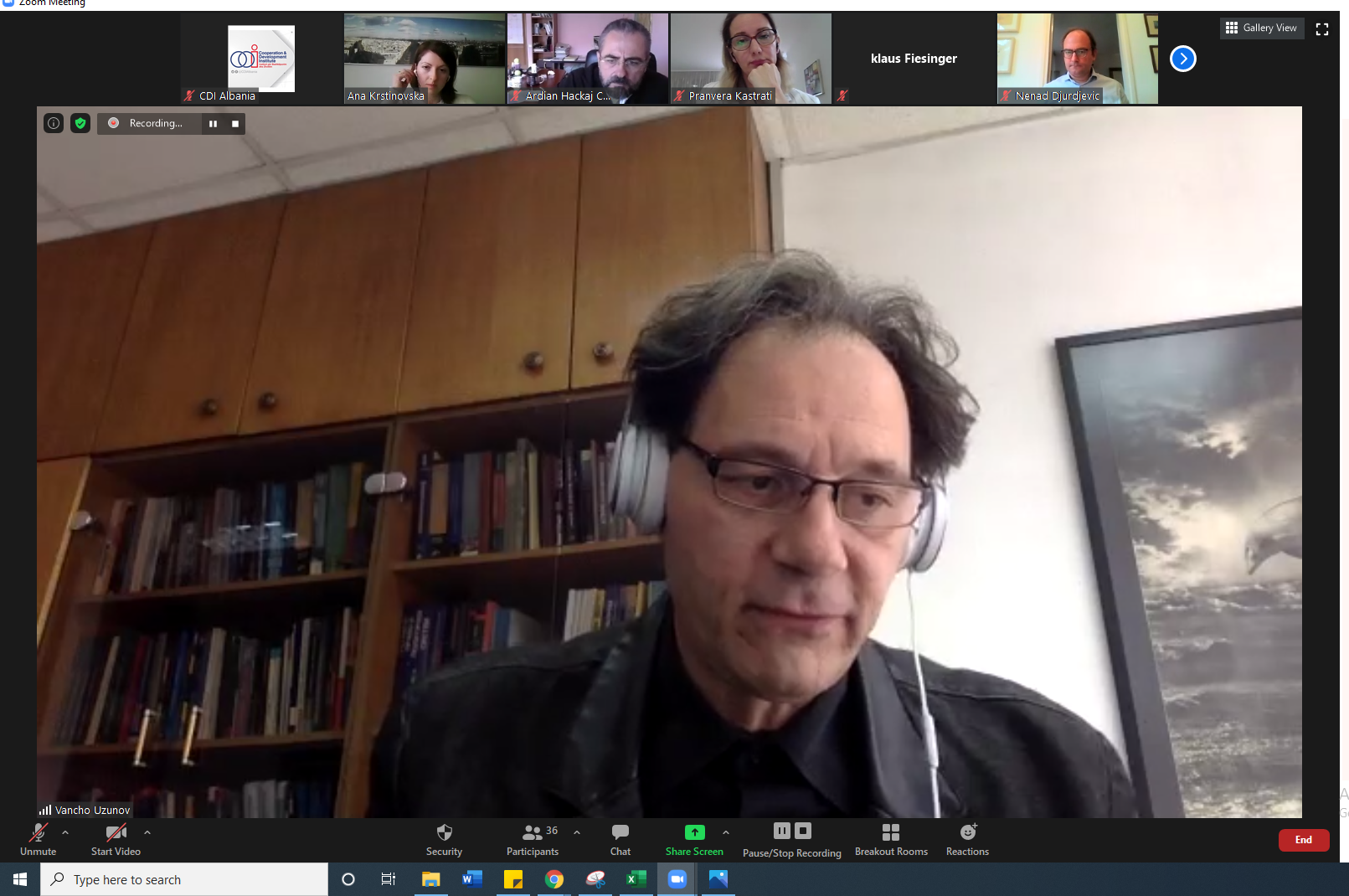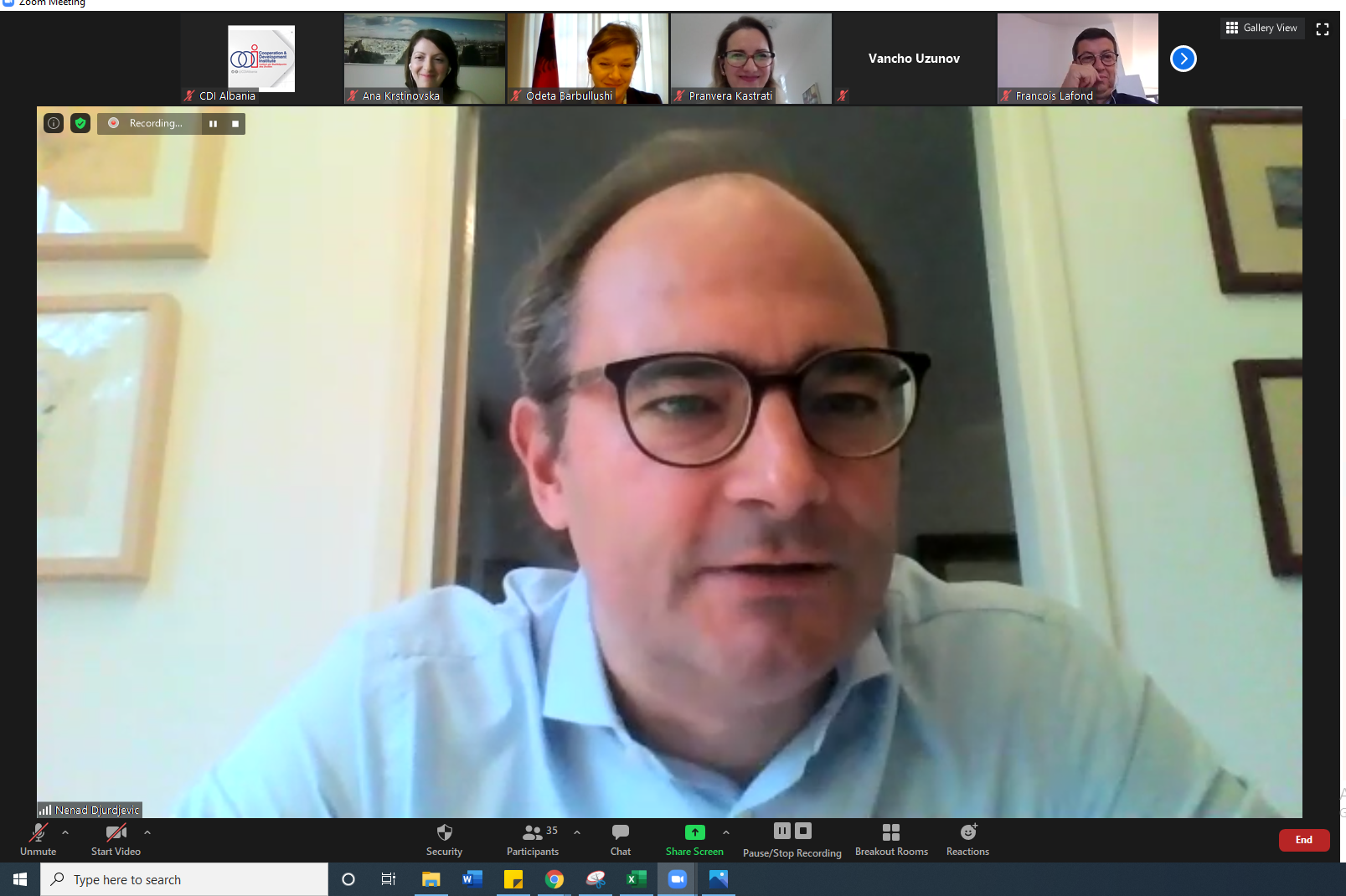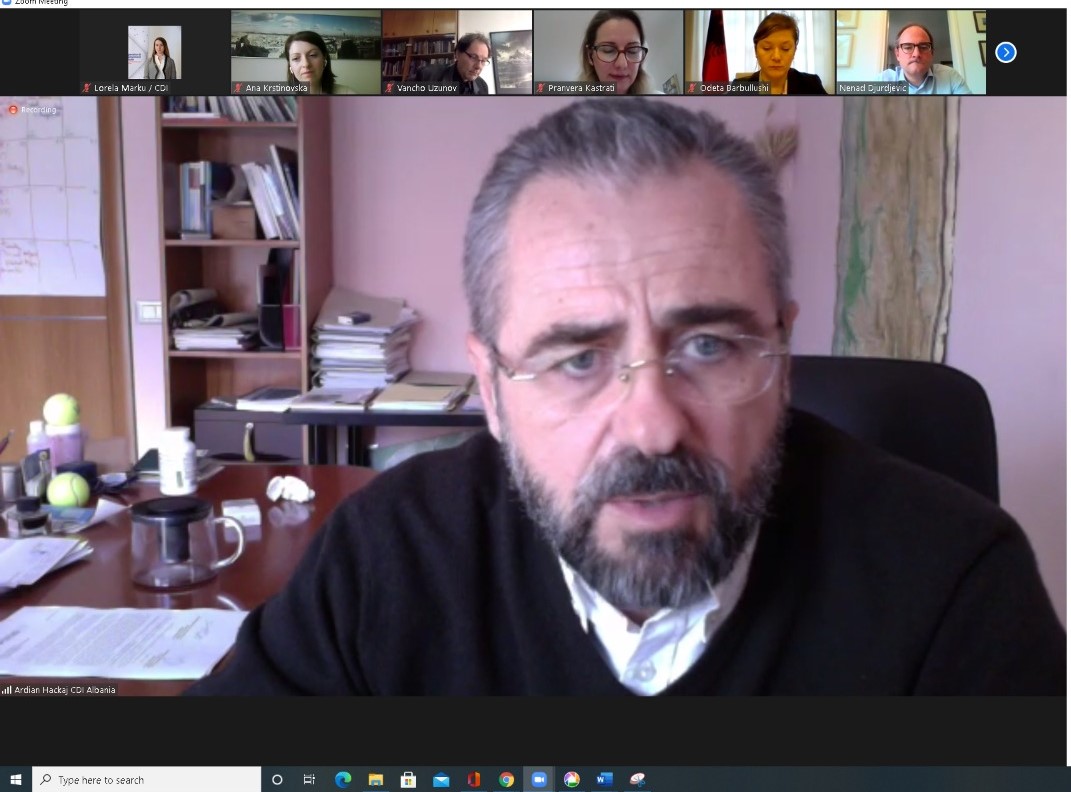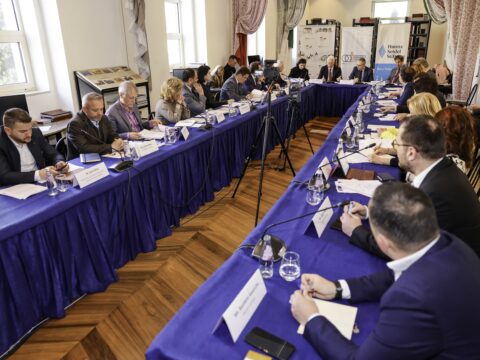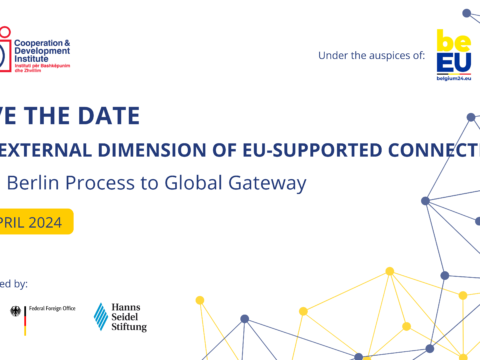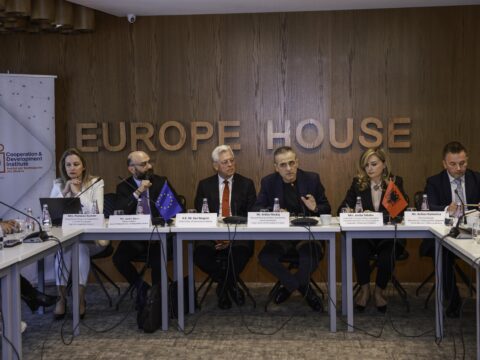17 November 2020
Cooperation and Development Institute (CDI) in partnership with Hanns Seidel Stiftung organized on 17 November, the online seminar “Takeaways from Sofia Summit on Growth, Sustainability and Resilience in SEE6”
The aim of this seminar was to put Sofia Summit conclusions and engagements in the Enlargement dynamics.
The online seminar began with the welcoming remarks of the moderator Ms. Ana Krstinovska, President of ESTIMA, North Macedonia who emphasized the importance of the Berlin Process and greeted the German Initiative while highlighting that next Berlin Process summit will be returning in Berlin where it all started. The webinar was also addressed by Mr. Klaus Fiesinger, Regional Director for Southeast Europe of Hanns-Seidel-Foundation, who highlighted the obstacles coming from some member states over veto power as the case with Bulgaria and North Macedonia has shown in the past days, in a time when both countries co-chaired the Berlin Process summit 2020.
The panel discussion kicked off with the intervention of Ms. Pranvera Kastrati, Senior Expert on Economic and Digital Connectivity at Regional Cooperation Council, who explained the challenges that the SEE6 region should overcome in order to successfully create a Common Regional Market – CRM and reap the benefits of the 4 freedoms. Ms. Kastrati mentioned the achievements of REA MAP 1 such as – trade facilitation and the signing of the roaming agreement, but she also highlighted some challenges ahead, especially in regard with the four freedoms following the Core 4 freedoms of the EU single market, which are mainly related to the market size. She added that the market integration cannot be reached unless you have complementarities with other areas, like transport policies, green and circular economy having less and less barriers while goods are transported within the among the Western Balkans. She also highlighted the positive Green Lane initiative, which even if started due to a response to COVID-19, it resulted to be very positive and now is the part of the common regional market action plan.
Professor Vancho Uzunov, National MAP REA Coordinator for North Macedonia discussed about the Economic and Investment Plan and its support for the countries in the region to better connect among themselves and with the EU in terms of infrastructure, value chains, etc.
Professor Uzunov highlighted the importance of the absorption capacity of the EU funds and the respective administrative capacities that the institutions in the Western Balkans should have, while implementing them.
He continued that the fundamentals first is a set of reforms the countries need to implement, which is also reflected in a way in the Council conclusions at the Sofia Summit, which for for the first time mentioned the aspect of integrity compliance. So, the whole initiative is not only about pure economic topics, but there is a very strong political conditionality.
Likewise, Ms. Odeta Barbullushi, Advisor to the Albanian Prime Minister and National Coordinator for REA MAP presented the novelties of the Berlin Process and further developed the aspect of institutional connectivity that helps the region to further harmonize with EU policies and to achieve closer convergence.
According to Ms. Barbullushi, what made the three documents of the Sofia Summit more special, as compared to the past six Summits or as compared to regional economic area launched in 2017, is the unified response to the economic crisis after the pandemic and the possible inclusion of the Western Balkans in the response mechanisms, but also the political momentum in the enlargement perspective.
With regard to the new novelties of the Common Regional Market, Ms. Barbullushi mentioned the deeper economic integration in the region, the strengthening of human capital, digital connectivity and the green agenda for the Western Balkans.
Mr. Nenad Djurdjevic, Political Advisor to the President of the Chamber of Commerce and Industry of Serbia discussed about the role of SEE6 region in times of increased vulnerability of European companies due to COVID-19 and disruptions in global value chains, and on how can the Western Balkans governments and companies benefit from this situation and attract big European companies to invest, (de-)localise into this region and include domestic companies in their supply chains.
“For doing business, the market size is very important. In our case, our markets are very fragmented, even if we consider the 18,000,000 people market of the whole Western Balkans six countries” said Mr. Djurdjevic. In addition, he mentioned that there also some challenges as our markets in some areas are competing among each other and we are trying to protect our own market. Some of the key obstacles for foreign investors are related to the complex regulatory environment, with the access of land, cadaster, registration, and the labor, flexibility and skills shortages that are still quite present in the region.
In addition, Mr. Djurdjevic pointed out that despite the focus of the connectivity agenda in infrastructure, energy, transport and telecommunication, the intra-regional connectivity remains very poor. There is the need to build and to invest in energy infrastructure that will link the region not only to the European Union or to European countries, but also among us. In his intervention, Mr. Djurdjevic emphasized the need for a stronger political will and coordination also with the citizens and to the business communities.
The panel was concluded by Mr. Ardian Hackaj, Research Director, Cooperation and Development Institute (CDI). He added that the most important elements or pillars of this discussion were about governance, implementation, political will, reforms and enlargement, and the common regional market. Furthermore, Mr. Hackaj reiterated the importance for a political coordination and for proper governance mechanisms, while highlighting the connection between a common regional market and reforms enlargement. Mr. Hackaj also announced that the proceeds of the Seminar will be published in the form of a Policy Paper before 31 December 2020.
To consult the agenda of the event, please click here.



